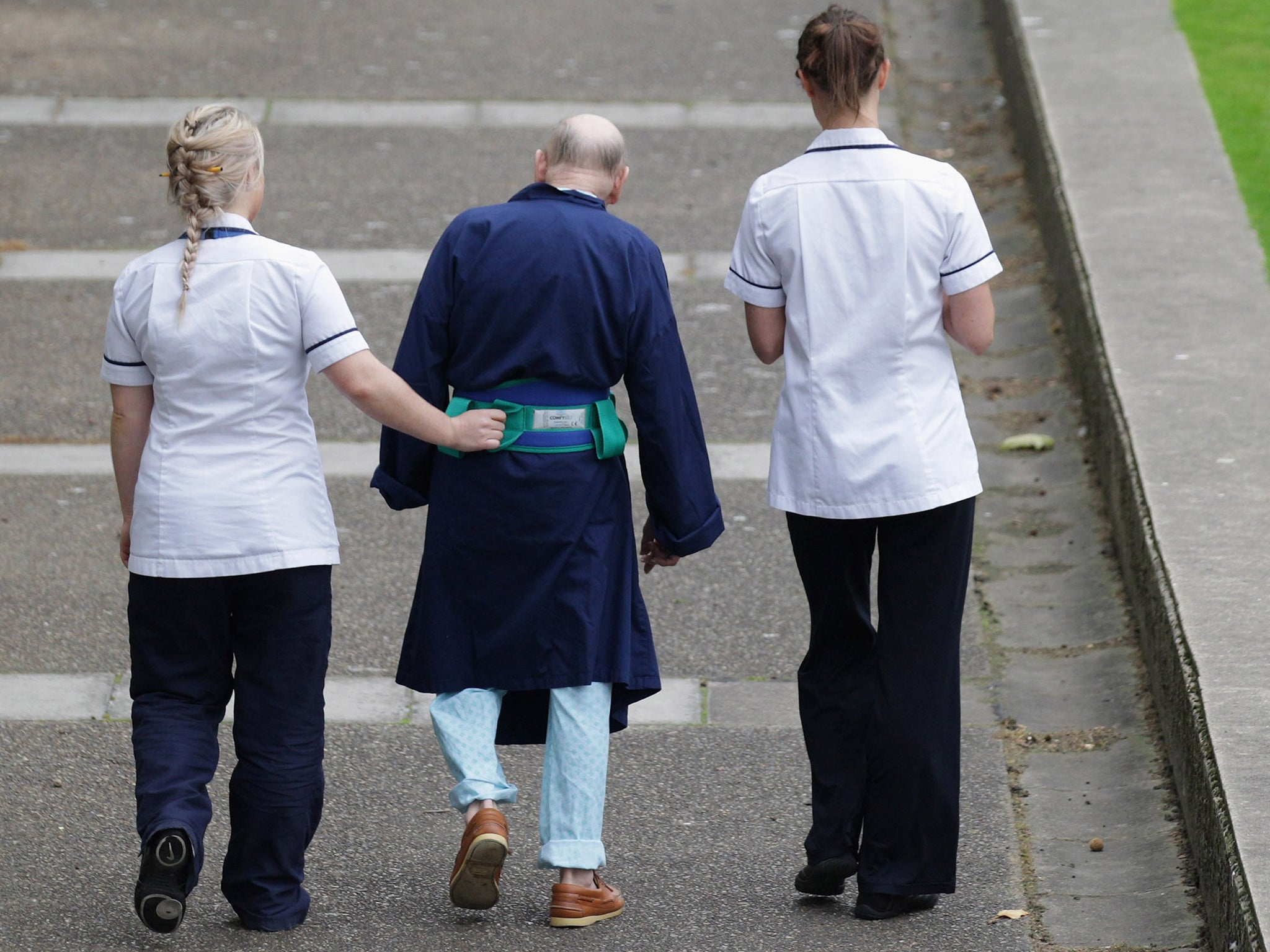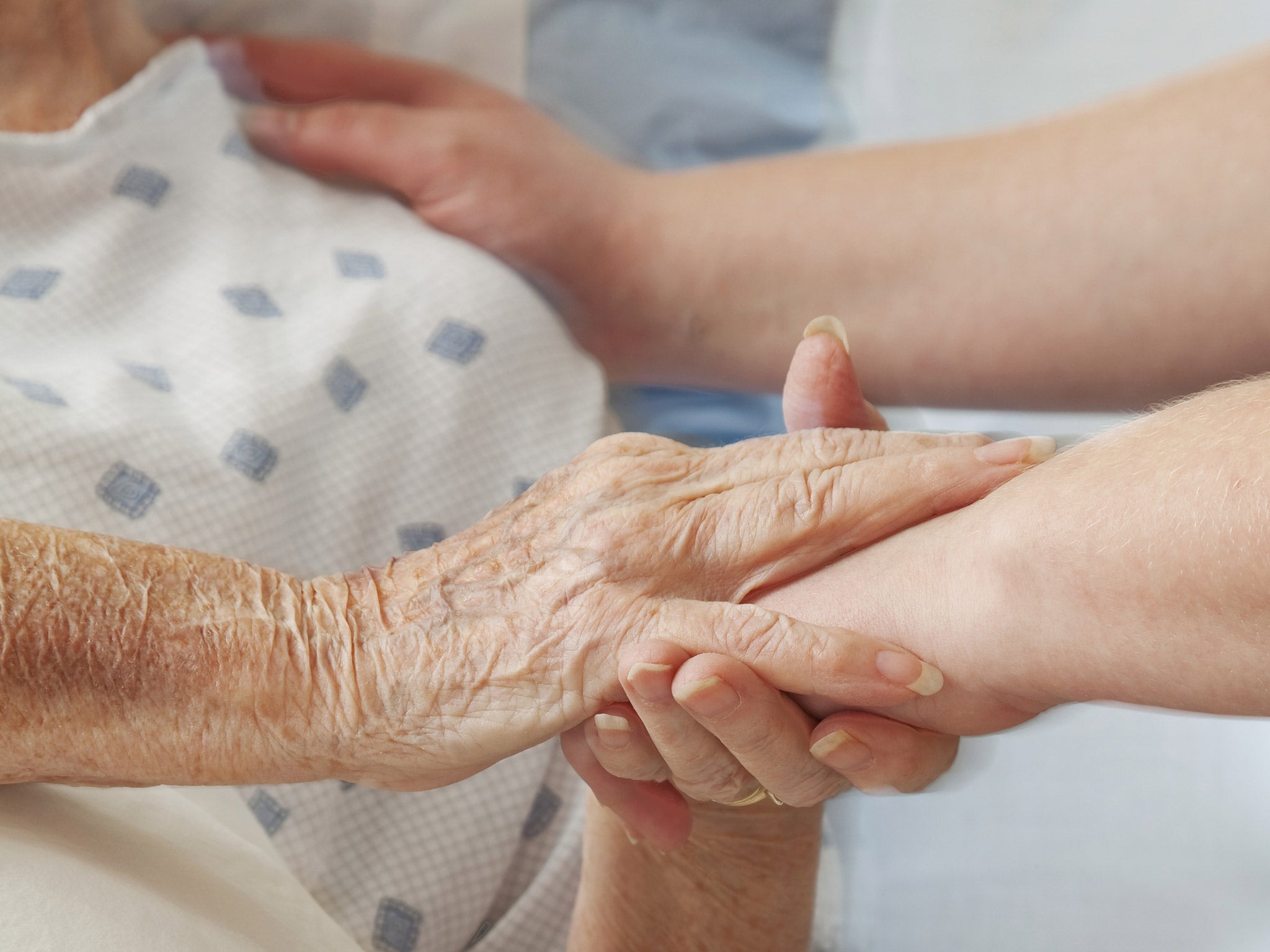Doctors to trial 29-point checklist for elderly patients facing 'unavoidable' death
Researchers in Australia claim the controversial checklist would give families more choice

Your support helps us to tell the story
From reproductive rights to climate change to Big Tech, The Independent is on the ground when the story is developing. Whether it's investigating the financials of Elon Musk's pro-Trump PAC or producing our latest documentary, 'The A Word', which shines a light on the American women fighting for reproductive rights, we know how important it is to parse out the facts from the messaging.
At such a critical moment in US history, we need reporters on the ground. Your donation allows us to keep sending journalists to speak to both sides of the story.
The Independent is trusted by Americans across the entire political spectrum. And unlike many other quality news outlets, we choose not to lock Americans out of our reporting and analysis with paywalls. We believe quality journalism should be available to everyone, paid for by those who can afford it.
Your support makes all the difference.Scientists have drawn up a 29-point checklist they say will help doctors identify elderly patients facing an “imminent and unavoidable” death.
Researchers at the University of New South Wales, in Sydney, Australia, insist that the checklist does not intend to withhold treatment but said it intends to stop “intrusive, expensive and ultimately pointless medical procedures”.
The programme, dubbed CriSTAL (Criteria for Screening and Triaging to Appropriate alternative care), will be trialled in Sydney A&Es later this year to identify patients deemed likely to die within three months of going into hospital.
Among the points listed as risk factors is low blood pressure, a weak pulse, history of disease, dementia, repeat hospitalisation, weakness, heart failures and sudden weight loss.
Dr Magnolia Cardona-Morrell, who led the research at the university’s Simpson Centre for Health Services Research, said: “Most terminally ill people want to die at home, but in fact three quarters end up dying in acute hospitals, often after intrusive, expensive and ultimately pointless medical procedures.

“Current acute hospital systems often fail to recognise or cater to the needs of people for whom death is imminent and unavoidable. They are geared for aggressive treatment and emergency resuscitation, not peaceful, harm-free transitions.
“Elderly people who are dying need to be protected from heroic but intrusive live-saving hospital interventions that often only prolong suffering rather than enhance quality of remaining life.”
The checklist is only meant to be used for patients aged 65 or over and a number of factors must combine for death to be considered “unavoidable”.
A spokesperson for the University of New South Wales said CriSTAL had been compiled using an “extensive review of the strengths and weaknesses of medical literature that attempts to diagnose dying”. Most of the existing tools were found to rely on clinical judgment, subjective assessments and value judgments.
A paper describing the assessment procedure has been published in the BMJ Supportive and Palliative Care journal.
In it, Dr Cardona-Morrell and Ken Hillman, a professor of intensive care, argue that a balance must be struck between limited health resources, families’ expectations and the dignity of the patient.
CrisTAL is being trialled in selected hospital emergency departments in Sydney this year. The programme includes communication training for medical staff, so they can sensitively discuss with dying patients and their carers the limitations of medical treatment and their choices.
Dr Cardona-Morrell said medicine “cannot work miracles” against old age and multiple chronic conditions in elderly patients.
Her co-author Professor Hillman believes the management of elderly patients at the end of their lives is “one of the greatest challenges facing health care”.
“Most patients and their carers do not wish to be admitted to a hospital at the end of their life and this is a major contributor to the unsustainable costs of health care,” he said.
No such list exists in Britain but the director of Age UK said the move would be welcomed on the condition that discussions with relatives were handled “compassionately”.
“The best time to begin discussing end of life issues and an older person’s wishes is well in advance, when they are fit and well, but we acknowledge that this isn't always possible,” Caroline Abrahams added.
“The ability to accurately identify people entering hospital who are nearing the end of their lives ought to help ensure they receive high quality care, appropriate to their needs, so we welcome this development.
"However, in practice, access to good end of life care services remains extremely variable and discussions with older people and their families about this most difficult of subjects are not always handled sensitively and well.”
Join our commenting forum
Join thought-provoking conversations, follow other Independent readers and see their replies
Comments